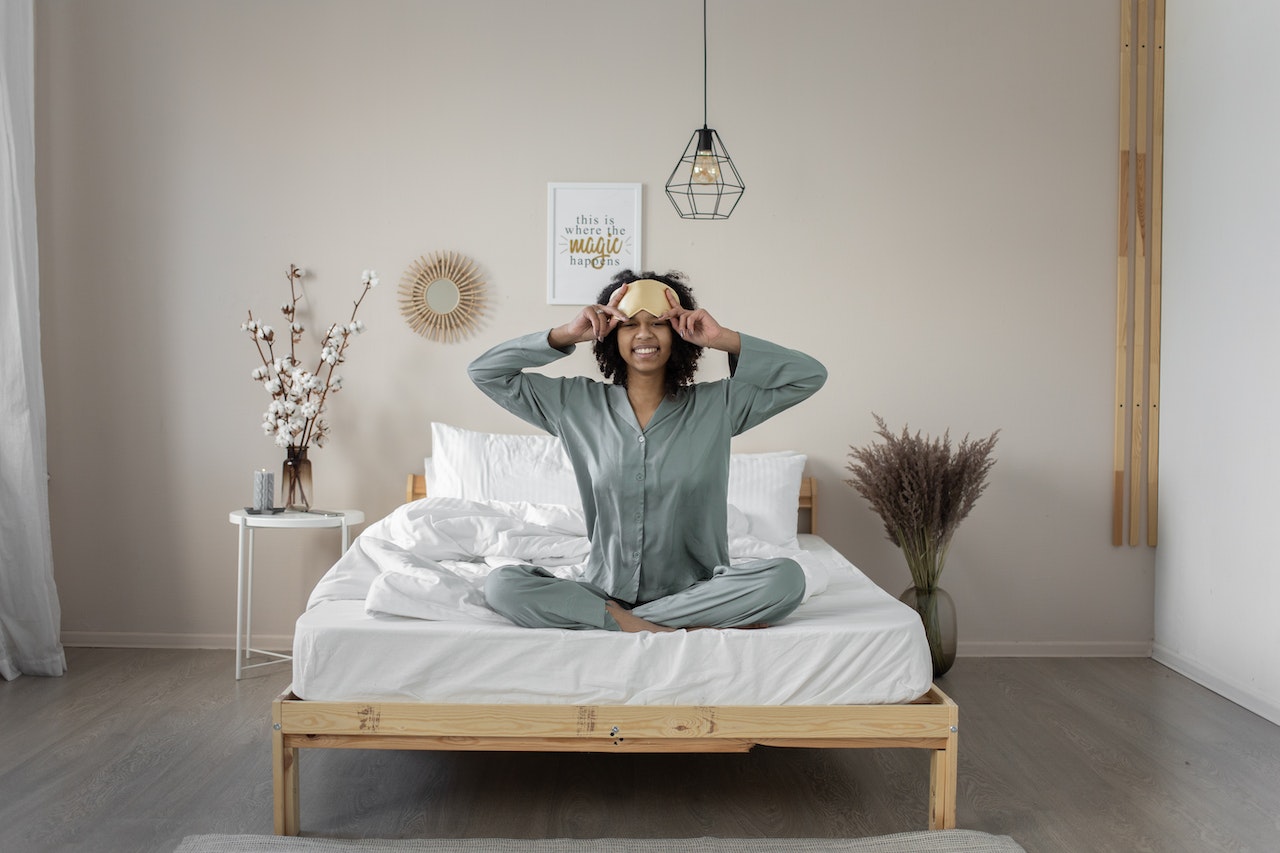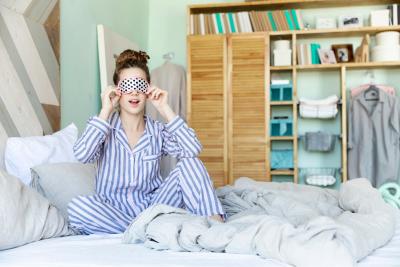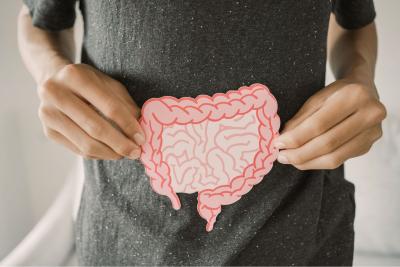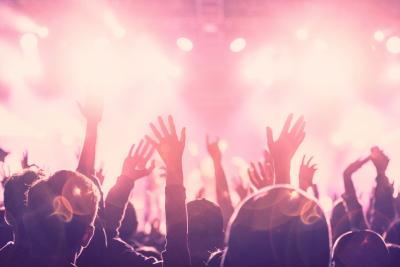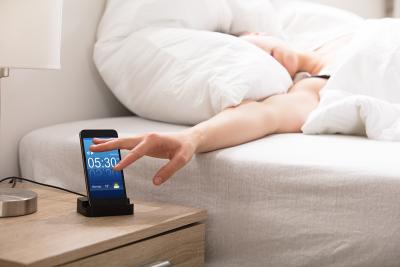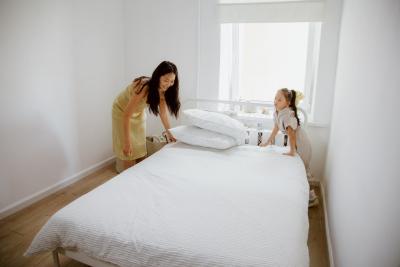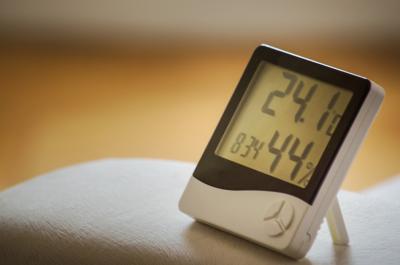It’s recommended that adults get 7-9 hours of sleep each night, but sometimes, that’s just not possible. This is especially true for those with ADHD (Attention Deficit Hyperactivity Disorder).
ADHD is a condition which affects people’s behaviour and can cause, but is not limited to, high energy levels, impulsive behaviours and difficulty focusing. As such, it’s estimated that 25%-50% of individuals who have ADHD suffer from sleep problems. In particular, sleep disturbances include restless leg syndrome (RLS) and insomnia.
We have collaborated with our resident sleep psychologist, Dr. Katherine Hall of Somnus Therapy, to share insights into improving sleep quality.
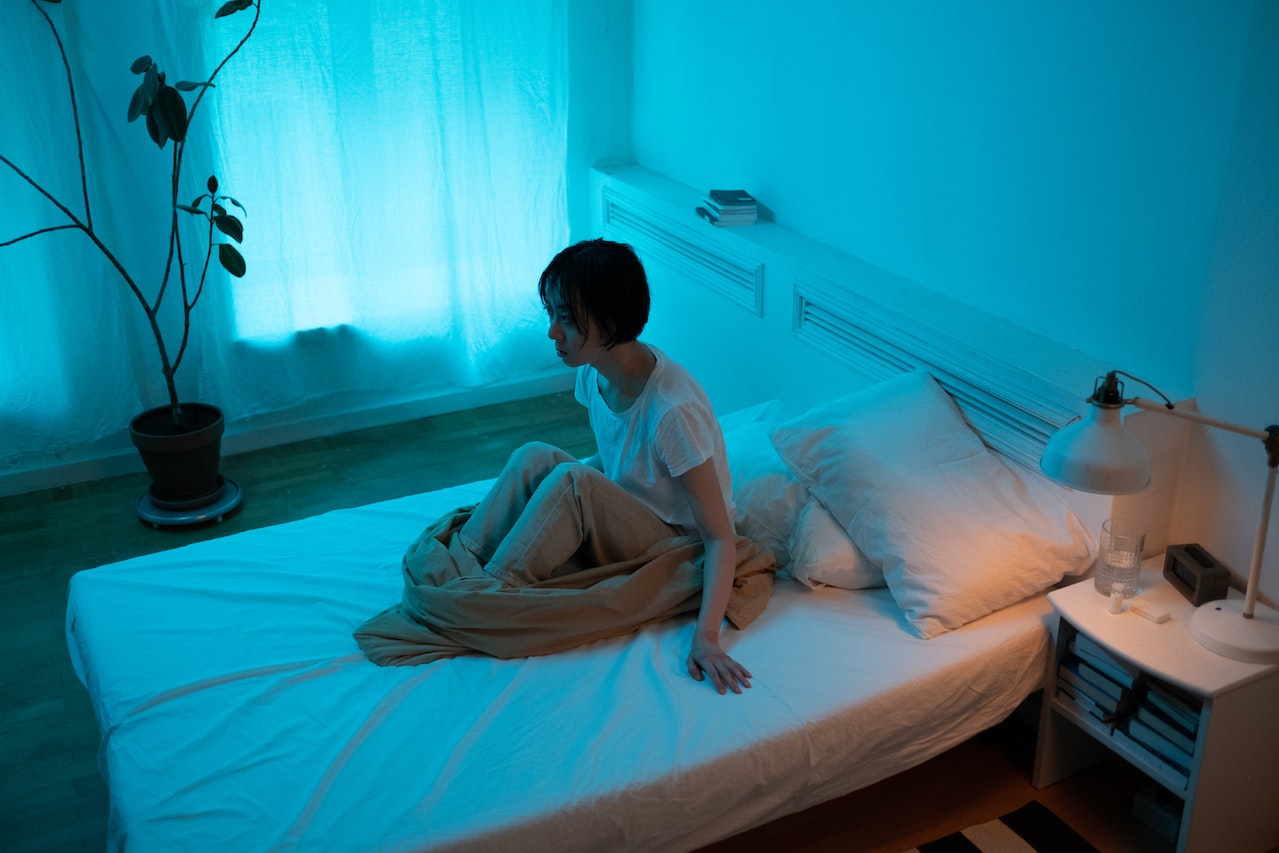
How does ADHD impact sleep?
It’s estimated that around 366 million people have been diagnosed with ADHD, highlighting how many people could experience sleep problems.
Insomnia can affect almost half of people with ADHD
Insomnia is a condition that makes it difficult to fall asleep and stay asleep and can cause people to wake in the night, leading to a groggy feeling when getting up for the day. It is also thought to be prevalent in people with ADHD, with one study discovering that insomnia was found in 44% of adult ADHD patients. Up to 30% of the world’s population is affected by insomnia, which becomes more common as we age and experience changes to our health and sleep patterns.
However, insomnia can be commonly associated with ADHD as attempting to sleep provides the perfect opportunity to think about different tasks and ruminate over thoughts that can inevitably stop you from falling asleep. Likewise, as ADHD is often characterised as difficulty focusing and sticking to a routine, this is how insomnia can slowly sink in.
This can lead to daytime drowsiness and an inability to function as well as you would like in your work and personal life. This could be why up to 30% of people with ADHD could have Narcolepsy, where people tend to fall asleep quite suddenly during the day and sleep worse at night.
People with ADHD can feel more alert and restless at night
Unfortunately, sleep problems are common among those with ADHD, kids and adults alike. One of the reasons this is thought to be the case is because ADHD can affect your circadian rhythm or your sleep-wake cycle. The light and dark regulate this 24-hour internal body clock. Your body knows to wake when it gets light and sleep during the dark.
However, people with ADHD can have trouble settling down to fall asleep, which can disrupt that routine. This could be because of the inability to focus and stop the mind from wandering once their head hits the pillow. Pair that with a disrupted circadian rhythm, and you could experience severe sleep deprivation. It’s also possible that ADHD symptoms can get worse with less sleep.
Adults with ADHD are more likely to have restless leg syndrome (RLS)
Studies have shown a strong co-occurrence between people with ADHD and RLS. But what does that mean?
People with RLS can feel uncomfortable in their legs after lying down, which can become more intense. This leg discomfort can subside when moving around. Alternatively, sudden kicks and leg movements can jolt you awake, another symptom of RLS.
If this happens throughout the night, it can lead to significant sleep deprivation, which can have further health implications. The effects of poor sleep can be seen on your skin and eyes and even make you more susceptible to illness. Constant sleep deprivation can affect your immune system, allowing things such as the common cold to creep in.
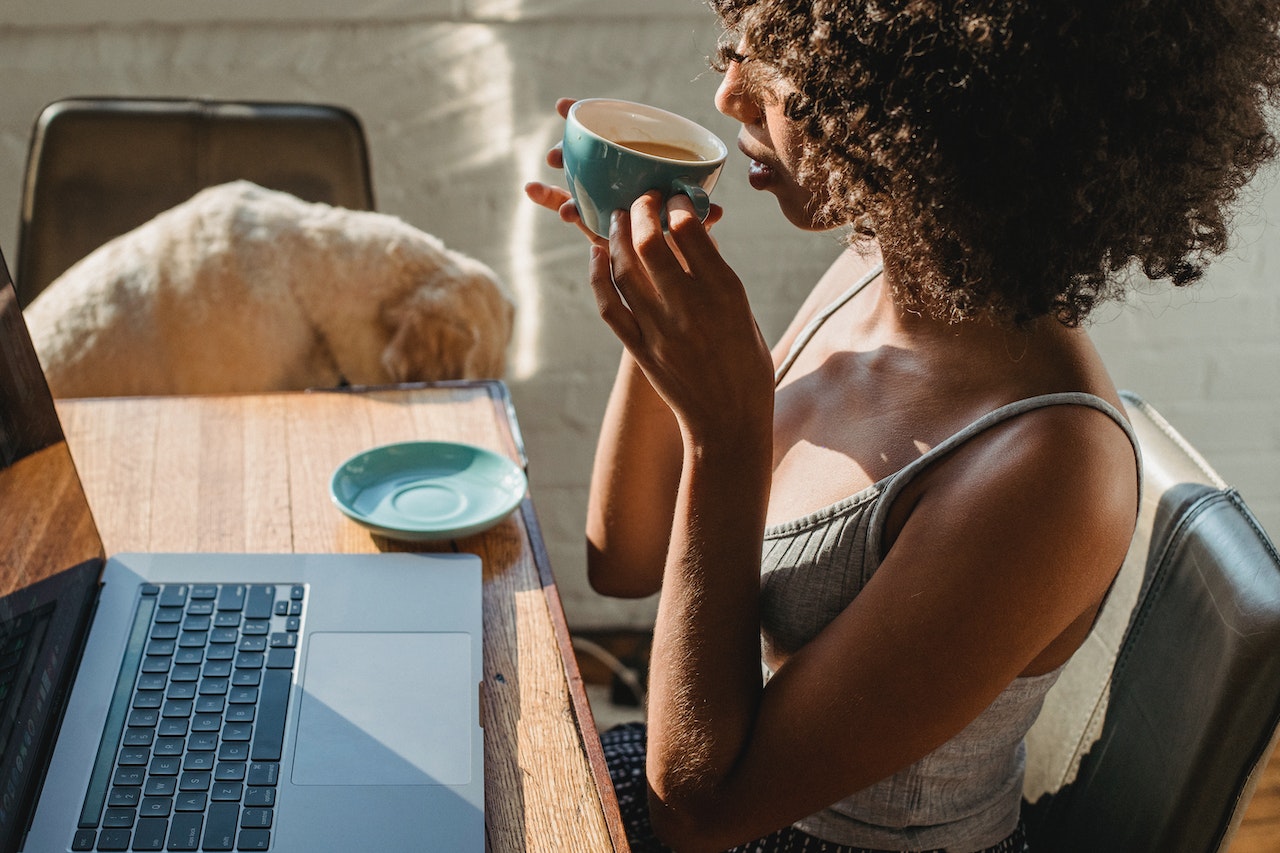
People with ADHD often rely more on caffeine for concentration
Caffeine is a stimulant that stimulates the body’s central nervous system, boosting dopamine production, which controls our ability to concentrate. As people with ADHD struggle to focus, there is more of a tendency for those to opt for caffeine to help with concentration.
Some studies have shown that people with ADHD consume more caffeinated beverages than those without ADHD. And while research shows caffeine can help with concentration for ADHD, it’s important to err on the side of caution. Pairing large amounts of caffeine with amphetamines - a form of stimulant medication that is used to treat ADHD - can also lead to an increase in side effects, which can include anxiety and sleeping difficulties.
As such, we have found further studies that suggest you should stop drinking caffeine altogether six hours before bed and never within the first hour of waking up. This is because drinking caffeine while our cortisol levels are high (at their peak when we wake) can help us develop a tolerance to caffeine. You can read more about this with our caffeine alternative to improve sleep.
8 tips to improving your sleep if you have ADHD
If you do have ADHD, that’s not to say that you can’t improve your sleep quality; far from it. We have collaborated with Dr. Katherine Hall to share our tips on how you can improve your sleep if you do have ADHD.

1. Use a weighted blanket to manage your symptoms
Weighted blankets have long been tipped as a revolutionary method for helping sleep. The blanket, typically weighing up to 20 pounds, applies gentle pressure to your body that can help create a sense of calm and stillness. Some people have described them as similar to receiving a hug.
They have been used to help people with anxiety and insomnia, and studies have shown they can make a difference for people with ADHD. One study demonstrated that weighted blankets can significantly decrease insomnia symptoms and improve people’s ability to sleep. This study was also conducted on people with disorders such as ADHD and anxiety.
If you do have ADHD, a weighted blanket could be a powerful tool in getting to sleep.

2. Take movement breaks throughout the day
As mentioned previously, keeping yourself busy throughout the day is essential. If you’re feeling restless or suddenly have the urge to get up and be active - do it! Regular movement breaks are a great way to let off some steam and get the blood pumping.
If you do have RLS, it’s recommended that you do moderate exercises such as walking and yoga. So, if you get a chance, go for a gentle walk at lunch or remember to get up regularly to grab a glass of water.

3. Try meditation for just 13 minutes
If you struggle to sleep, meditation could help. A review of 13 studies found that meditation and other mindfulness activities improved ADHD symptoms 100% of the time. If you are wondering how long you should meditate, research suggests consistent meditation for 13 minutes each week can help you see results.
If you are new to meditation, apps such as Calm and even Apple Fitness will take you through the process (some as short as five minutes) so you can begin to meditate on your own. Getting outside and letting your mind wander can also help you sleep. We discovered that forest bathing - walking through nature - can reset your body clock and improve sleep in just 17 minutes!

4. Reading for just six minutes can calm stress levels by 68%
Did your parents ever read you a bedtime story? Or have you ever found reading can help you sleep? There’s a reason why books are such a popular nighttime activity.
A study found that reading can reduce stress by up to 68%, working faster and better than other relaxation methods, such as listening to music (61%) or walking (6%). What’s more, you only need to read for six minutes to experience this reduction in stress levels. The average reading speed for one page is one minute, meaning you only need to read six pages before sleep.
However, if you feel staying up with the lights on to read a book could prove distracting, why not try an audiobook or sleep story? Of course, you can also use apps such as Calm, which enable you to choose a specific voice to send you to sleep. And, if you struggle to stop your mind from wandering, focusing solely on the voice could help you fall asleep.

5. Switch to red-toned lightbulbs in your bedroom
Most night lights or bedroom lamps use light that is white, blue or green based. These colours are on a similar wavelength to natural daylight and, therefore, negatively impact your circadian rhythm (your internal body clock) as your body thinks it is daylight.
However, did you know that red bulbs are the one type of light that doesn’t affect the body's melatonin levels? If you can, switch to this colour, particularly as it’s reported that people with ADHD can have a disrupted circadian rhythm.

6. Rub your wrist for two to three minutes
There are more unique tips that can help if you struggle to fall asleep and stay asleep. One such example is rubbing where your wrist and hand connect. If you feel for the hollow space on the right side of your right wrist (where your hand connects), apply gentle pressure for two to three minutes in circular motions. Then, repeat this on your other wrist and so on.
This pressure point can help you fall asleep as it is said to help quieten the mind, which is particularly useful if you struggle to stop your mind from wandering.

7. Say goodbye to your electronics
Don’t worry, you don’t have to throw them away. However, any distractions in your bedroom can lead to distractions and an inability to fall asleep. Place your phone and any other devices that can light up in the night into a drawer. Or better yet, put them in another room so you are not tempted to ‘doom scroll’ during the night when struggling to sleep.

8. Stick to a sleep schedule
Maintaining a good sleeping pattern is essential for everyone, but we understand that’s easier said than done! Going to bed at the same time every night ensures our circadian rhythm (the sleep-wake cycle) works correctly, so it’s crucial to try and keep our routine as consistent as possible.
If you are looking for even more sleep tips, check out how to lower stress levels for better sleep. Alternatively, you can check out our range of beds if you believe your bedroom furniture could contribute to your lack of sleep.


